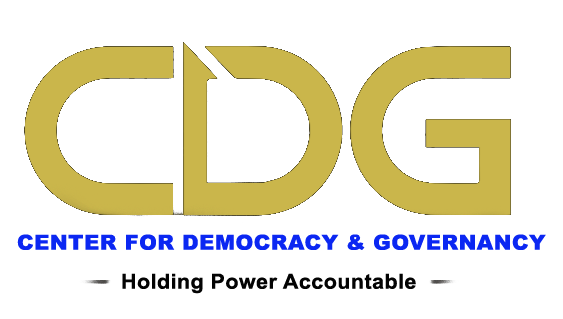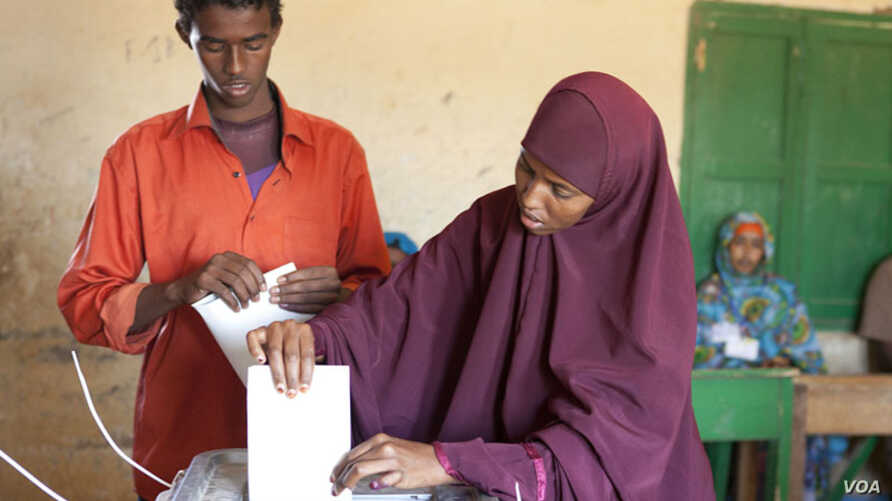- BACKGROUND:
The universal definition of democracy is “Governance of the people, by the people and for the people”, which in practice entails a) Good Governance, b) Rule of Law and c) Political tolerance and stability. The one fundamental tool of a democracy, therefore is holding “free and fair elections that are held in accordance with the timeframe as prescribed in the national constitution. In this context, therefore, and considering the path Somaliland has trodden, it would be hypocritical to expect we follow the set rules to the letter, but the operative word is “are we on the right path in our democratic process. This paper is therefore trying to elucidate the current democratic position of the country, and if at all we are headed in the right direction.
Somaliland seceded from Somaliland in 1991, but remains internationally unrecognized to date which has not helped at all. However, Muhammad Haji Ibrahim Egal, the president of Somaliland from 1993 to 2002, argued in 1999 that recognition would be dependent on the country’s pursuit of democracy. He proceeded to devise a constitution that was put to a popular referendum in 2001. For fear of encouraging other separatist movements in the region, the international community, following the African Union, has never obliged to recognize Somaliland. But rather than stunting democracy in Somaliland, this response the people of Somaliland have strived to ensure democracy is practiced as much as possible. Donors often impose democratic reforms as a condition of financial aid, although this has not directly affected Somaliland
Democracy in Somaliland has evolved out of a series of mass public consultations—clan-based conferences—which endowed it with an unusual degree of legitimacy. The system’s most striking feature is the upper house of clan elders, known as the “Guurti”, which ensures there is a broadly representative government.
However, Somaliland’s democracy as currently practiced is by no means spotless. Corruption is endemic, and the media are seldom critical. The influence of the clans has been muted but not eradicated. And elections are repeatedly delayed. The vote on November 13th 2017 is by now overdue by more than four years, and all branches of government have now outlived their mandates. The lower house has sat for about 14 years and counting; the Guurti has sat unelected since it was formed in 1993.
Democratic events that cause worries include the following:
- Somaliland first presidential election was conducted in 2003 followed by the 2010 elections after twice being postponed. The third one was conducted in November 2017instead of the programmed June 2015-a delay of two years
- Somaliland parliamentary elections were conducted in 2005 for a 5-year term we are already in our 15th year without elections.
- The local council term also finished April 2019 but still working without any legal support reflecting their continuation.
- Different agreements between the government and the political parties 2017, 2018 and 2019 are unattended to in the archives.
- The Somaliland political parties converted into clan political parties whereas most of the clans compete inside the political parties and dominated other clans from the minority clans.
- The leaders of the three political leaders are from same clan whereas other clans dominated and have no space to compete for the senior positions (President) except designed positions in to clan perspective.
- Women, youth are the marginalized groups and have no important role to play in the political parties.
With the national democratic landscape being what is illustrated above, perhaps it is time to analyze the key players in the whole process.
- The Somaliland Key Players in the Democratic Processes
2.1. The Institutional Framework
Failure to promote and exercise democracy always, and indeed has negative effects in national initiatives. This has put the country at great risk in a world of continually emerging challenges. It is therefore imperative that state institutions that are charged with the task of enhancing and encouraging democratic processes exercise their tasks expeditiously to enable the country move in a positive direction.
2.1.1. Parliament
The key tasks of a parliament is a) Make Laws, b) Represent the people and c) Conduct Oversight on the executive in all state operations. The current crop of MPs have stayed in office for more than three election cycle terms. Some MPs have even crossed over to newly formed political parties after their parties were dissolved, and still maintain their positions as MPs. With that kind of Parliamentary set-up, the role of oversight is completely forgotten
2.1.2. The Guurti
The Guurti is equally mandated to oversee the executive in its law-making responsibilities. However on the contrary, it acts as a subsidiary arm of the executive that rubber-stamps term extensions. The Guurti is even on record to have extended the terms of president Egal (2001), president Rayale (2008 and 2009) and president Silayo (2015 and 2016). Currently even the terms of councilors nationwide has experied in 2019, but they still occupy their seats without ny official extension.
2.2. The Executive
Since the 2017 elections, reports by the Human Rights Organizations has documented frequent arrests of political opponents without due legal processes. For example the WADDANI youth arm chairman was arrested and jailed for 3 months for mere expression of his opinion on Facebook. The Media also have not been spared as media repression and arrests of journalists has become normal practice. The UN Independent Expert visiting Somaliland in 2019 reported 70 violations against the media.
2.3. Political Parties
These are characterized by lack of ideological differences, with almost none having a blue-print for economic transformation of our country. The main opposition party, Waddani, has refused to work with the NEC, contributing to the delays. Waddani contested the 2017 presidential poll results but withdrew its complaints after episodes of violence. While agreeing to move on, Waddani chairperson and presidential candidate Abdirahman Irro said he still disputed the results, but rescinded his complaints for the greater good of Somaliland’s stability.
2.4. The Somaliland National Electoral Commission (NEC)
In the absence of support from the other stakeholders, there is very little they can do, but when supported like they were supported by the USAID, EU,EU member of states and UK in the 2017 elections, they are capable of delivering credible elections.
However, Waddani has proposed dismissing the current NEC, but the presidency and the ruling Peace, Unity and Development Party (Kulmiye) have balked at these demands, saying the NEC is competent. The third and smaller political party, UCID (For Justice and Development), has recently gravitated towards Kulmiye on these matters.
Both Waddani and Kulmiye have backed themselves into a corner. Waddani believes the NEC was responsible for its 2017 loss. Kulmiye has refused to accept Waddani’s complaints and will not replace all the commissioners as that would call into question the legitimacy of its 2017 victory.
The main opposition party doesn’t want current election commission members to prepare the next poll, and this is the best recipe for continued postponement of elections.
However, the fact that the political parties are able to debate the electoral process in an open and non-violent manner shows how far Somaliland has come. But the failure to compromise indicates how divisive electoral politics has become, with each election cycle setting the stage for intense contestation in what some regard as an increasingly zero-sum system. Both sides will need to compromise to advance Somaliland’s democracy and consolidate the gains made thus far.
Our Take for Way Forward
In order for us to be fully recognized by the International community, we need to put our house in order, through the rule of law and adherence to democratic processes. This is essential for our country as we grapple with resilience building for the good of our young population and for posterity.
Review the National Constitution to Ensure the Following:
- That NEC is reconstituted and Commissioners elected in a Transparent Manner
- Go for Constituency Based Elections instead of Clan-Based Elections
- Redefine the Role of the Guurti
- Political Parties in Somaliland are the epitome of poor democratic practice and to reverse this, there should be constitutional provision governing Political Parties as follows:
- Establish an Office of the Registrar of Political Parties and any party for registration to register with the office
- Internal Democracy to be enhanced in all Political Parties
- All Political Parties to have a National Outlook, whereby for a Political Party to be registered, it must have representation in two thirds of the Regions
- Bench-marking Visits should be encouraged so that the parties visit mature democracies worldwide, and more specifically in Africa.
Contact:
Center for Democracy and Governance
Main office: Jigjiga yarr, near Safari hotel, Gororiye Building 1st floor
Tell” +252-634425849
Email: cdgsomaliland@gmail.com

